-
Concerned Communities of Bream Bay against Marine Sand MiningWhy sign this petition? This petition gives our local elected members and councils the mandate to ensure the health and wellbeing of Bream Bay and local communities are protected into the future by submitting strong opposition on our behalf. Why is this important? We don’t need to destroy our seabed to build our future. New Zealand companies are producing engineered sand from recycled materials – a cleaner, smarter and more sustainable alternative. With growing investment in engineered sand technologies across NZ, marine mining is no longer necessary. Bream Bay is a thriving ecosystem. It’s home to protected marine species, vital fisheries and beloved beaches. Its health is essential to our environment, economy and the community’s wellbeing. This proposed large scale operation would: • Destroy seabed habitats and vital marine ecosystems. • Disrupt sediment flows that protect our beaches, increasing erosion and coastal instability. • Create sediment plumes that smother marine life, and degrade water quality far beyond the mining zone. Together, we can protect Bream Bay’s unique marine environment, preserve its cultural and recreational value, and secure a sustainable future for our communities. Bream Bay is not a quarry. This is our coast. Let’s keep it safe for generations to come. For more information https://savebreambaysand.org/ References Sand and Sustainability: 10 Strategic Recommendations to Avert a Crisis | UNEP - UN Environment Programme Kayasand - Sand Manufacturing & Fine Aggregate Separation Products & Services UNEP Marine Sand Watch reveals massive extraction in the world’s oceans ‘Alarming’ scale of marine sand dredging laid bare by new data platform3,329 of 4,000 SignaturesCreated by Bream Bay Guardian Society

-
Increase access and funding for Ozempic, Wegovy, Trulicity, and Mounjaro in NZWhy is this important? In New Zealand we do not have the same access to pharmaceutical medications as the rest of the world. If we were to have open access, we would be in control of our own lives, and could make choices that could significantly improve health and wellbeing. We have little power over what potentially harmful compounds are put in our food chain and because of this, obesity is on the rise in Aotearoa, and this is linked to Type 2 diabetes as a result. There are around 100,000 people in New Zealand living with undiagnosed diabetes. The people with a diagnosis of prediabetes if left unchecked risk developing Type 2. Type 2 carries a high risk of comorbidity symptoms, such as hypertension (high blood pressure), obesity, and hyperlipidemia (high cholesterol), and other comorbidities include renal (kidney) disease, retinopathy (vision impairment), and cardiovascular conditions (heart attack and stroke). People with type 2 diabetes may also experience depression and anxiety. Ozempic, Wegovy, Trulicity, and Mounjaro can make a real difference in people’s lives. Studies and new research demonstrate the long-term effectiveness of these drugs in controlling blood sugar and weight loss. Over 50 percent of type 2 diabetes cases can be prevented or delayed therefore improving our health and wellbeing. We see the difference it has made in other countries. Please sign the petition so we can help ourselves and our loved ones before they are diagnosed with something irreversible. Further Reading: [1] People who have type 2 diabetes have an increased amount of sugar in their blood, also called blood glucose. Increased blood sugar happens because your body’s insulin doesn’t work as well as it should. Ozempic, Wegovy, Trulicity, and Mounjaro help to keep your blood sugar levels from getting too high. In your body, these medicines act like a hormone called GLP-1. It stimulates your body to make more insulin after you eat, prevents your liver from releasing stored sugar, and slows the movement of food through your body. GLP-1 is a hormone produced by the body's intestinal cells that helps regulate blood sugar and food intake. It's produced when the proglucagon gene is processed in the intestinal endocrine L-cells. GLP-1 is produced in the intestines, pancreas, and neurons. When you eat, GLP-1 triggers the pancreas to release insulin, which helps move sugar from your bloodstream into your cells. GLP-1 also slows down digestion and reduces appetite. GLP-1 receptor agonists that treat Type 2 diabetes are Semaglutide, Tirzepatide, and Dulaglutide which are all medications used to treat Type 2 Diabetes and obesity. They are glucagon-like peptide-1 receptor agonists (GLP-1 RAs) that help lower blood sugar and body weight. So both semaglutide and tirzepatide work by acting like hormones your body normally makes after you eat. They can make your stomach empty more slowly so that you won’t want to eat again as soon. They also send signals to the brain that tell you you’re full. The main difference is that tirzepatide mimics two hormones while semaglutide mimics one. https://www.webmd.com/obesity/mounjaro-ozempic-wegovy-zepbound-difference. And https://www.medsafe.govt.nz/Consumers/cmi/t/trulicity.pdf [2] A Press New Zealand article quotes “Peter Shepherd, a molecular medicine professor at Auckland University and expert in diabetes and obesity, saying the long-term impact of Ozempic “could be huge” for New Zealanders” Also Associate Professor Hesham Al-Sallami, at the University of Otago, an expert on diabetes and obesity medication, believes if Ozempic or similar medicines were funded in New Zealand, it would take considerable pressure off the hospital system. [3] “If Ozempic can help patients lose weight, this could reduce the number of people getting type-2 diabetes in the first place,” . “If this drug is made accessible in New Zealand as a weight-loss medication and is funded by Pharmac for that use as well, this could have considerably positive health outcomes for the country, taking pressure off the hospital system by reducing things like heart attacks and strokes.” https://www.thepress.co.nz/nz-news/350430990/why-miracle-weight-loss-drug-still-not-available-nz References: Why is this important? https://diabetesjournals.org/care/article/40/3/352/36943/Type-2-Diabetes-and-Comorbid-Symptoms-of https://info.health.nz/conditions-treatments/ https://www.hri.org.nz/health/learn/cardiovascular-disease/diabetes https://www.medicalnewstoday.com/articles/ozempic-wegovy-improve-blood-sugar-levels-and-weight-loss-in-type-2-diabetes-study#:~:text=New%20data%20shows%20that%20drugs,long%20way%20in%20recent%20years. What is Type-2 Diabetes: https://www.diabetes.org.uk/guide-to-diabetes/managing-your-diabetes/treating-your-diabetes/insulin/resistance https://www.diabetes.org.uk/guide-to-diabetes/complications. https://www.diabetes.org.uk/about-diabetes/type-2-diabetes173 of 200 SignaturesCreated by Tracey White
-
Stop Nelson City Council supporting companies doing business in illegal Israeli settlements.All people should have the right to freedom, safety and self-determination. Whether we live in Nelson or Palestine, feeling at peace and safe in our homes is essential to living happy lives. To know that the gardens and orchards our families have tended over generations will still be here to nourish our children. We all deserve these rights yet right now families in Palestine live in constant threat of being targeted by the Israeli military, pushed out of their homes and persecuted for being Palestinian. Since 1967 many Palestinian homes, gardens and orchards have been bulldozed or cleared for Israeli settlers. We seek that the Nelson City Council align their procurement policy with United Nations Resolution 2334, and the obligations placed on member states by that resolution. Israel is currently in breach of many international laws. Israel is illegally occupying Palestinian territory (2, 3). UN resolution 2334 refers to the territory held by Palestine in 1967 and the illegal occupation of that territory by Israel. As an occupier state, Israel has legal obligations to protect Palestinians who live in their territory. Israel is in breach of these obligations by directly targeting and harming Palestinian civilians. UN resolution 2334 requests that Israel cease all settlement activities in the occupied territory. In support of this, Clause 5 of the resolution calls upon all states to distinguish between the territory of the state of Israel and the territories occupied since 1967 in all dealings with the region. The Resolution was put forward by and voted in favour of by the New Zealand government under the leadership of the National Party in 2016 (4). Subsequently, in February 2020 the United Nations published a database of over 100 companies it considered were doing business in the Israeli settlements. On 1 July 2023, the United Nations reviewed the list and removed 15 companies from the list due to them having halted activity in the Israeli settlements. United Nations Resolution 2334 declared that all member states should not deal with organisations doing business in the illegally occupied Palestinian Territories, this includes Aotearoa/New Zealand. We call on our local government to align its procurement policy with UN resolution 2334. References: 1. https://www.un.org/webcast/pdfs/SRES2334-2016.pdf 2. https://www.icj-cij.org/node/204176 3. https://www.ohchr.org/en/press-releases/2024/07/experts-hail-icj-declaration-illegality-israels-presence-occupied 4. https://www.mfat.govt.nz/en/media-and-resources/un-security-council-adopts-historic-resolution-on-israeli-settlements803 of 1,000 SignaturesCreated by Te Tau Ihu Palestine Solidarity
-
Return Charlie Girl Kākā to her whānau and her home of 24 years in Te Anau.We believe that Aotearoa is a place where nature and animals are cared for and respected. We have a long history of taking care of our bird life and believe this practice needs to continue. Sadly over four months ago the Department of Conservation moved Charlie Girl Kākā (also known a New Zealand Forest Parrot) from her home of 24 years to 'boost chick numbers' at their facility in Dunedin.[1] This is despite concerns being raised before the move and immediately after. Three major welfare concerns for Charlie have been raised by five veterinarians, multiple parrot experts, and many Te Anau residents.[2] Internal emails reveal Charlie Girl was weaving within the first hour at Dunedin. Weaving is a stereotypical distress behaviour, and Charlie is clearly overwhelmed by the environment at the Dunedin breeding facility. Despite this, no action was taken to support Charlie. Carol, Charlie's first keeper, who cared for her for a decade, was aware of Charlie weaving in July. Still action was taken. We have documented Charlie's increasing physical pain since her relocation to Dunedin, as her arthritic left wing sags more and more with each passing week. Charlie is weaving from the ceiling from distress[3]. And on top of all that she is kept with a frustrated and aggressive male who keeps harassing and attacking her. Charlie Girl was well cared for and loved in her home in Te Anau. She had supportive keepers and volunteers, a Voluntary Physical Therapy Program, and individualised care. DOC says Charlie can go 'anywhere but home' and that Te Anau is not a 'favoured' location for her.[4] Charlie is suffering in Dunedin while DOC refuses to admit a mistake. Internal emails reveal DOC acknowledged concerns for Charlie's welfare before the move. But now that she is struggling in Dunedin, DOC refuses to acknowledge concerns and claim she is fine. DOC even went on One News and admitted that even though she 'can't really fly well' she is somehow 'robust' enough for 'a bit of fun' when being harassed by the male kākā. None of this is acceptable, and sets a dangerous precedent for the care of our captive manu (birds). We need to speak up for Charlie Girl. She is taonga (treasured) and deserves to be home. Check out our facebook page for video evidence of our welfare concerns on Charlie Girl. Her community is distraught by what is happening to her in Dunedin and want her home: https://www.facebook.com/share/v/15FrwjUxiM/ References [1] https://docs.google.com/document/d/1KeIPut9WGFpYZ-5Z_OcOijTelIVNYS-QQdyrIyl7KU4/edit?usp=sharing [2] https://drive.google.com/drive/folders/10PW2KAcPZ7wFSwumiXf8Q_4gczxIhLa4 [3] https://www.facebook.com/helpcharliekaka/videos/1612541019355029/?fs=e&mibextid=Mk4v2M&rdid=3fLzOg3fngTJT7O3# [4] https://drive.google.com/drive/folders/10PW2KAcPZ7wFSwumiXf8Q_4gczxIhLa42,848 of 3,000 SignaturesCreated by Christina Abramowicz

-
End the US Blockade of Cuba - End the false Terrorist label - Provide economic aidAs people with great compassion for the world's wellbeing, humanitarian issues are of deep concern to the people of Aotearoa. Cuba is in the midst of an ongoing humanitarian crisis, and October’s widespread power outages are only adding to the Cuban people’s troubles. For the last six decades, Cuba has been on the receiving end of myriad sanctions by the United States government. This blockade has proved devastating to human life. The people of Cuba need international support to repair the damage wrought by these sanctions, and we can achieve this by providing food and aid. According to the United Nations Office for the Coordination of Humanitarian Affairs (OCHA), Hurricane Rafael caused widespread destruction, primarily in the province of Artemisa. OCHA reports: “The impact of Hurricane Rafael has so far left (damage is still quantified), some 25,471 homes with various damages, concentrating its impact in the province of Artemisa with more than 83% of the damage. Severe effects predominate considering the ravages of strong category 3 winds. As a result, some 92,000 victims have been identified. At the same time, around 60,000 people (20,000 families) have been identified with severe problems in accessing electricity; they have had coverage with small photovoltaic systems as an immediate alternative, among others to access water. At the same time, damage to the conventional power grid has affected an additional 305,000 people. [...] With Hurricane Rafael, a total of 144 health institutions were damaged in the three affected provinces of the western region. These include 28 hospitals, 43 polyclinics, 123 family doctor's offices and 51 other types of clinics. In Artemisa, significant damage is reported in two hospitals, the José Ramón Martínez Pediatric Hospital in Guanajay and the Ciro Redondo García General Hospital in the municipality of Artemisa. (UNCT Cuba, OCHA, 25 Nov 2024)” One of President Donald Trump’s final acts, when he was in office last time, was to re-designate Cuba as a State Sponsor of Terrorism (SSoT), after President Barack Obama had removed them from the list in 2015 as a part of his Cuban thaw. Inclusion on the list subjects a country to restrictions on US foreign aid and financing, but, more importantly, the SSoT list encourages third-party over-compliance with sanctions. “Businesses and financial institutions, including many from outside the United States, often elect to sever all connections to Cuba rather than risk being sanctioned themselves,” The Hill (1/5/24) reported.106 of 200 SignaturesCreated by Michael Treen
-
Concerned Communities of Taranaki and Manawatu Against Seabed MiningThe South Taranaki Bight is home to a rich and diverse marine ecosystem supporting a wide range of species and habitats, including dolphins, penguins, and whales. The area is also a popular spot for fishing, with abundant and diverse fish species. The area’s underwater ecosystems include important feeding and breeding grounds for marine life, such as fish, seabirds, and marine mammals. It is vital that the health of this abundant ecosystem is protected to ensure the long term health of these habitats and the wellbeing of our communities. This is our coast. Trans-Tasman Resources Ltd (TTRL) is seeking to fast-track a proposal to mine iron sands from the seabed within the South Taranaki Bight. This proposal poses a direct threat to the marine life and habitats that depend on this delicate ecosystem. Seabed mining, which involves extracting minerals from the ocean floor, is an experimental and largely untested process. It presents significant risks to the seabed and surrounding environment, potentially causing far-reaching and irreversible damage to not only the project area, but extending many kilometres along the coast due to the spread of sediment plumes that could smother these ecosystems. TTRL wants to mine offshore in depths of up to 20-42 m deep. They plan to dig up 50 million tonnes or more of the seabed every year for 35 years, dumping 45 million tonnes back onto the ocean floor [1]. The dumping back of the waste is what differentiates seabed mining from sand mining, and it has a much bigger impact on the benthic and marine environment. This type of seabed mining has not been carried out anywhere else in the world. This isn’t TTRL's first attempt to get consent for seabed mining in the area. Over the past decade TTRL has had several unsuccessful attempts, spending millions of dollars on the hearing processes and using up an extraordinary amount of time and hundreds of thousands of dollars from the New Zealand public and existing industries, particularly fisheries, opposing their plans. So far their attempts to gain consent have been unsuccessful for risks to the ecosystems and inadequate information in their applications [2]. Now TTRL is making another attempt to secure consent for seabed mining off the Taranaki Coast through the new Fast Track process. The application area in 2024 is 66km2, but the company has permits for over ten times this area, for which a fast track consent could create a precedent. By applying to the Fast Track process TTRL are trying to side step the ongoing opposition to their plans. The Fast Track Bill proposes no feedback and submission process from the community, and only allows submissions from invited “relevant” local authorities. The local community has rallied against this proposal for years, dedicating significant time and resources to protect this precious environment. Local Iwi, along with residents, environmental organisations, boaties, fishers, surfers, and dairy farmers have been continually fighting to oppose this operation [3]. Offshore wind energy development is also threatened by seabed mining, and one developer has already pulled plans for this renewable energy source, due to TTR’s mining bid [4]. Wind farm developers are adamant the 2 projects are not compatible. The full economic and environmental impacts of this proposal have not been adequately assessed or presented. To fully understand the potential consequences of seabed mining, an independent regional cost-benefit analysis is needed. This analysis would provide a comprehensive evaluation of both the short-term and long-term effects on the local economy, environment, and community well-being. Because local councils are potentially the only bodies invited to provide feedback to the Fast Track expert panel or the Environmental Protection Authority (EPA), it is crucial that we, as residents directly impacted by this proposal, come together in opposition. By uniting our collective voice, we can give our local councils the mandate to ensure the health and wellbeing of our unique coast and communities are protected into the future by submitting strong opposition on our behalf. For more information on the social and environmental effects and the known economic costs and benefits please check out our website at: https://www.concernedcommunities.co.nz/ Bfm radio interview here: https://95bfm.com/bcast/get-action-concerned-communites-of-taranaki-and-manawatu-against-seabed-mining-w-whanganui-district References: 1. https://www.forestandbird.org.nz/campaigns/seabed-mining 2. https://www.courtsofnz.govt.nz/assets/cases/2021/2021-NZSC-127.pdf 3. https://www.theguardian.com/world/article/2024/aug/19/deep-sea-mining-new-zealand-south-taranaki-bight-ocean-seabed-patea-beach-ntwnfb 4. https://newsroom.co.nz/2024/10/24/offshore-wind-developer-pulls-out-of-nz-amid-seabed-mining-concerns/3,460 of 4,000 SignaturesCreated by Charlotte Melser
-
Protect our youth: Make Wellington’s streets safe!Aotearoa New Zealand should be a place where young people can experience life and make memories while being safe and protected. Wellington should be a city where our young people can have fun in a safe environment, without the fear of harm. Sadly, that’s not the case. A recent Salient survey revealed 75% of students have felt unsafe in a Wellington nightclub, and many highlighted concerning safety issues they'd faced travelling to and from the city at night and the lack of safe transport options. [2,3] “I can’t walk on Courtney without feeling like I need to constantly be watching my back” -Rachel (22) Young people and our communities know what the issues are and what solutions will work for us. That's why we want WCC to work with us - especially those that are often the target of harm such as our ethnic communities, queer communities, disabled communities and more. We are asking them to: • Commit to a project for young people's safety and wellbeing • Centre young people's leadership by co-creating it with us • Provide funding to enable young people's involvement and participation in the process • Funding pathways for intercultural cohesion through education and community building We truly believe that a wide-scale cross-community project would be a great first step for youth wellbeing and safety. We would start by engaging with communities on things that impact our safety - like transport, de-escalation skills, nightlife culture, safe spaces, accessibility, and cultural attitudes. In the meantime, there are already some solutions the WCC could action now, such as: • Increase funding for Take10 to include more safe spaces in and around Cuba street - Courtenay place area • Require all liquor licence holders to ensure their staff are trained in de-escalation training • Create teams of trained professionals that can go from venue to venue and make sure that people in need are cared for, including providing drug and alcohol harm reduction information and support • Train up more wardens from affected communities to be present in the inner city areas over the weekend nights, to help increase safety • Free and accessible transport • Free wi-fi and public accessible charging stations Why now? Mayor Tory Whanau has asked for a refreshed city safety plan now that the Pōneke Promise is coming to an end.[6] We want to make sure the new plan includes a project focussed on the wellbeing and safety of our young people, and reducing harm in the inner city. In late 2020, local communities raised concerns about the safety in central Wellington. At the start of 2021 the Wellington Alliance Against Sexual Violence - a coalition of youth-led organisations hosted a rally on Courtney place calling on WCC and its partners to prioritise sexual violence prevention. [3,4] WCC listened and created Pōneke Promise which widened its focus on making ‘central Wellington safe, vibrant and welcoming”[5] Now that a new plan is being made, we need to make sure WCC listens to our communities again and delivers what we as young people need - Safer streets! Join us and together we can create a better future for young people! Acknowledgment We would like to acknowledge Luke Smith. Who we lost too early and who brought us all together to fight for a better future for our young people. Because of Luke Smith we are demanding that the wellbeing and the safety of our young people are put as priority by the Wellington City Council. This petition we created in consultation with Luke Smith’s family. If you would like to support the family in bringing their son back home to South African for his funeral please click here for their givealittle. Interview with bFM: https://95bfm.com/bcast/get-action-protect-our-youth-make-wellington%E2%80%99s-streets-safe-w-rachel-jaboon-from-vasda References 1. https://www.salient.org.nz/post/safety-and-harassment-in-wellington-s-clubs 2. https://www.thepost.co.nz/nz-news/350352650/unwanted-groping-part-student-culture-city-bars 3. https://www.nzherald.co.nz/nz/there-is-no-excuse-hundreds-turn-out-to-protest-against-sexual-violence-in-wellington/7AEJB5VQY7BJ6VB67MEFU47BVU/ 4. https://wellington.govt.nz/-/media/community-support-and-resources/community-safety/files/sexual-violence-prevention/sexual-violence-prevention-roadmap.pdf 5. https://wellington.govt.nz/community-support-and-resources/safety-in-wellington/the-poneke-promise 6. https://www.thepost.co.nz/nz-news/350356298/inner-city-safety-plan-be-updated-after-students-report-feeling-unsafe725 of 800 SignaturesCreated by V.A.D.S.A
-
GWRC: Save the Tawa On Demand bus service!The Tawa On Demand bus service provides vital access to local services for those living up on our steep hills, and enables a car-free commute for those working in town. It supports families and people with limited mobility, reduces traffic and emissions, and improves social cohesion. The service has exceeded expectations, with consistent usage and 96% customer satisfaction. Without continued support from GWRC, the service will have to stop at the end of this year. We’re asking GWRC to commit to funding sustainable public transport within Tawa - whether that’s the existing Tawa On Demand service, a scheduled service, or a mixture of the two, and to asking the Government to help out.1,331 of 2,000 SignaturesCreated by Jackson Lacy
-
Implement all recommendations from the Abuse in Care Royal Commission of InquiryWe all want Aotearoa New Zealand to be a place where everyone can thrive. Certainly a place where survivors of abuse in State Care and in the Care of Faith-based Institutions can thrive. We know that what has happened to the estimated 250,000 vulnerable adults, children, and babies is a “national disgrace” according to Judge Coral Shaw, former Chair of the Abuse in Care Royal Commision of Inquiry. The Abuse in Care Royal Commission of Inquiry’s Final Report, Whanaketia: Through pain and trauma, from darkness to light, has 138 recommendations to improve the State Care system, Faith-based Institutions and other departments that have worked with some of New Zealand’s most vulnerable people [1]. The Interim Report, He Purapura Ora, he Māra Tipu from Redress to Puretumu Torowhānui, has 95 Holistic Recommendations to improve the current redress systems (Ministry of Social Development, Ministry of Health, Oranga Tamariki - Ministry for Children and Ministry of Education) for survivors of abuse in care [2]. Summary of the recommendations are: • expansion of oranga, or wellbeing, services and support services for survivors and their whānau • increased financial payments for survivors • training for those working with survivors • establishment of a listening service • development of processes for referring allegations of abuse to other agencies • better monitoring of, and reporting on, abuse and systemic issues • memorials and other projects to honour survivors and remember abuse • enactment of a right to be free from abuse in care, as well as a duty to protect this right • an exception to accident compensation legislation • changes to laws relating to civil litigation • a review of legal aid rates • a model litigant policy for the Crown • improvements to the handling of survivors’ requests for records, including as few redactions of survivors’ records as possible • a review of record-creation and record-keeping practices. The Abuse in Care Inquiry has been in progress for the past six years. This is the largest inquiry into abuse in care that Aotearoa New Zealand has ever had. These reports from the inquiry shed light on the harrowing and horrific experiences that survivors faced while in the care of the state and faith-based institutions, and emphasise the profound impact that abuse has had on survivors’ lives. Now is the time for action: for people across Aotearoa to come together and be part of the process that ensures that survivors in Aotearoa can thrive. By signing this petition, you are standing up for the rights of survivors and sending a clear message to the Crown: They have a duty of care to survivors, and a duty to implement all of the recommendations from the Abuse in Care Royal Commission of Inquiry. Together, let's ensure that survivors are supported. Join us in this crucial fight by signing the petition today and spreading the word to your friends, family, and community. Together, we can make a difference and safeguard the future of care and help survivors of abuse in State and Faith-based Care to thrive. _________ Additional information and references: In February 2018, former Prime Minister, Jacinda Ardern, and former Minister for Internal Affairs, Tracey Martin, announced that there would be a Royal Commission of Inquiry into abuse in care [3]. However, the formal work of the inquiry didn’t commence until January 2019. Since 2019, the Inquiry has conducted a number of Hearings [4]: • September to October 2020 - State Redress Hearing held • November to December 2020 - Faith-based Redress (Phase 1) Hearing held • March 2021 - Faith-based Redress (Phase 2) Hearing held • May 2021 - Children's State Residential Hearing held • June 2021 - Lake Alice Child and Adolescent Unit Hearing held • July 2021 - Tulou - Our Pacific Voices: Tatala e Pulonga (Pacific People's Experiences) Hearing held • February 2022 - Marylands school (St John of God) Hearing held • March 2022 - Tō muri the p`o Roa, tērā a Pokopoko White-te-raa (Māori Experiences) Hearing held • June 2022 - Foster Care Hearing held • July 2022 - Ūhia te Māramatanga Disability, Deaf and Mental Health Institutional Care Hearing Held • August 2022 - State Institutional Response Hearing held • October 2022 - Faith-based Institutions Response Hearing held The final report of the Inquiry was presented to the Governor General, Her Excellency The Right Honourable Dame Cindy Kiro GNZM, QSO on 25 June 2024, and released publicly following the tabling of the Final Report in the House of Representatives on 24 July 2024 [5]. 1 - https://www.abuseincare.org.nz/reports/whanaketia 2 - https://www.abuseincare.org.nz/reports/from-redress-to-puretumu/ 3 - https://www.beehive.govt.nz/release/inquiry-abuse-state-care 4 - https://www.abuseincare.org.nz/about-us/timeline/ 5 - Parliament Video | New Zealand Parliament videos.parliament.nz *Disclaimer: more information will be provided in the Updates section Image credit: Designed by artist Ruby Jones in collaboration with Karah Mackie and survivors of abuse in care4,701 of 5,000 SignaturesCreated by Ihorangi Reweti Peters

-
ASB KiwiSaver divest from illegal Israeli settlements or we switch!All people should enjoy freedom, justice and equality. That includes Palestinians. Israel is occupying and colonising Palestinian land, and maintains an apartheid system of discrimination against Palestinians in the Occupied Palestinian Territories in violation of international law. We support the simple principle that Palestinians are entitled to the same rights as the rest of humanity, as called for by the Palestinian-led BDS movement. Israel is only able to maintain its apartheid regime and to expand its illegal settlements because of material support from the international community, including through unethical investments by global financial institutions (including ASB and other New Zealand banks and funds). According to research by Mindful Money, KiwiSaver funds' investments in companies financing and constructing illegal Israeli settlements in Palestine and arming Israel were up 20% in the first 5 months after October 2023. The research showed that our KiwiSavers have an estimated $200 million collectively invested in these companies. Many of our KiwiSaver funds are invested in companies that are involved in Israel’s illegal occupation, meaning that through our retirement savings we are inadvertently helping to finance of Israel’s system of apartheid, the expansion of illegal settlements in the Westbank and East Jerusalem, and the genocide of the people of Gaza. What can you do about it? It’s time we pressure our KiwiSaver providers, beginning with ASB, to stop financing Israel’s apartheid, ongoing colonisation and genocide and divest from the illegal settlements. Together we can get them to do the right thing. • Are you an ASB customer? Sign the petition and use your power to demand that ASB divest - or else you will switch to another provider. But don’t switch yet - while you’re still a customer you have power to pressure ASB - keep the pressure on till 29 November when everyone will switch together if they haven’t divested from Israel. • Not a ASB customer? Sign the petition and share to help bring others on board to demand action from ASB. Boycott action works - and is a powerful tool we can use to make big companies realise the cost of doing business with an apartheid state. Why ASB? Of all of New Zealand’s KiwiSaver funds, ASB has the most investments in Motorola Solutions Inc. Motorola Solutions Inc provides telecommunications, surveillance and military technology to the Israeli military and illegal Israeli settlements - effectively operating as the IDF’s technology arm and enabling the maintenance and expansion of these settlements. The company also provides technology for operating Israel’s checkpoints and separation wall, two key pieces of Israel's apartheid infrastructure.[1] https://www.whoprofits.org//writable/uploads/old/uploads/2018/06/old/bab_al_shams_-_ahmad_al_bazz.jpg Motorola Solutions Inc. have been included in the UN List businesses involved in activities that help maintain/enable Israeli settlements, which are illegal under international law. [2] ASB has $14 million invested in Motorola Solutions Inc., making their KiwiSaver fund one of the biggest investors in the occupation in the top 10 KiwiSaver providers. While many KiwiSaver funds are complicit in Israeli crimes, we have identified ASB as the #1 Most Unethical KiwiSaver for those who care about Palestinian human rights. The International Court of Justice – the world’s highest court – recently declared that states, international organisations, investment corporations and all other institutions must not assist in maintaining the illegal situation created by Israel in the Occupied Palestinian Territories.[3] ASB is currently complicit in Israel’s violations of human rights and international law through its investments in Motorola Solutions Inc. To avoid being an accomplice to this illegal activity, ASB must divest from Israeli apartheid. BDS works! In calling on ASB to divest from Motorola Solutions Inc. we are taking the lead from the Palestinian call for Boycott, Divestment and Sanctions as a form of non-violent pressure on Israel. Both globally and here in Aotearoa, companies are realising that the investments in companies that sustain Israel's apartheid are unethical and are divesting. NZ Super Fund, KiwiSaver provider Simplicity, and most recently Ireland’s sovereign investment fund and French Insurance giant AXA have all divested from services due to their role in illegal settlements. Public pressure works! We won’t stop with ASB’s investments in Motorola… ASB and other New Zealand banks and KiwiSaver providers continue to maintain investments in other companies directly or indirectly involved in the maintenance and expansion of the illegal settlements, listed in the UN database.[4] So we are also calling on ASB and all other New Zealand banks and KiwiSaver providers to adopt policies that prohibit investments in the companies identified by the UN and get rid of any existing investments in these companies. These financial institutions are on notice that we don’t want our money invested in Israel’s discrimination and colonisation. If they continue to bank on apartheid, we’ll stop banking with them! It is more urgent and important than ever that our voices are heard loud and clear by decision-makers and to encourage others to join our growing movement. References: [1] https://www.whoprofits.org/companies/company/3808? and https://wiki.stoparmingisrael.nz/motorola [2] OHCHR update of database of all business enterprises involved in the activities detailed in paragraph 96 of the report of the independent international fact finding mission to investigate the implications of the Israeli settlements on the civil, political, economic, social and cultural rights of the Palestinian people throughout the Occupied Palestinian Territory, including East Jerusalem [30 June 2023]. [3] Legal Consequences Arising from the Policies and Practices of Israel in the Occupied Palestinian Territory, including East Jerusalem (Advisory Opinion) [2024]. [4] See for example: kiwisaver_investments_israel – Stop Arming Israel (stoparmingisrael.nz). Photo credit: Motorola communication device used by the Israeli Police during the dispersal of a Palestinian demonstration Bab Al Shams, E1 Area | Jan 2013 | Photographed by Ahmad Al-Bazz, Activestills.8,799 of 9,000 Signatures
-
It's Time for a Capital Gains Tax!We all want thriving schools and early childcare centres, warm and dry homes, and a strong healthcare system. We get these vital public services through sharing our resources into a collective pool – this pool is our tax system: we all contribute, so that we can all flourish. But right now, our public services are crumbling. The combination of successive governments not allocating enough resources to them, while at the same time allowing the wealthy to avoid contributing their fair share, means our public services can't meet our collective needs. As a result we’re struggling to build new hospitals or get new ferries, or hire enough nurses, doctors, teachers and social workers. IRD research shows that the 311 wealthiest families in Aotearoa effectively pay 9.4% of their overall income in taxes, while the majority of everyday people pay over 20%.(1) This isn’t right. A capital gains tax is an important pillar of a balanced tax system that ensures everyone contributes a fair share of the income they make to the collective pool. By increasing the resources going back into the pool, we will then be able to allocate more to our public services - our schools, hospitals and more. Right now, income from selling assets isn't taxed like our income from salary or wages. This means that a lot of wealthy people who make money from buying and selling assets, like investment properties, don't contribute a fair amount of the profits they make to our collective resource pool. Buying and selling homes is being treated as a get-rich-quick scheme for people who already have access to wealth. For example, a person can sell a home that they don’t even need to live in and instantly make four times what an average person earns during a year, without paying any tax at all. (2) This is very different to the vast majority of countries worldwide, including all of those we most frequently compare ourselves to, who already have a capital gains tax in place.(3) We are lagging behind. Polling last year showed that a majority of people in Aotearoa are in favour of a capital gains tax - while support continues to grow across different sectors calling for this to change, most recently from ANZ CE Antonia Watson, Mainfreight Founder Bruce Plested and PWC tax partner Sandy Lau. (4) (5) It’s time to strengthen our collective pool so we can allocate the resources our public and community services need to help families and communities flourish! References: 1. IRD High Net Worth Individuals Research Project 2023 2. Christopher Luxon expected to make a capital gain of $295,000 from selling one of his seven properties this month 3. PWC - Global CGT Rates 4. Media Release: Poll Shows Clear Support for Tax Reform 5. A roll call of all the people championing a capital gains tax. Spinoff6,865 of 7,000 Signatures
-
Don’t cast us adrift! Ensure Cook Strait ferries can carry trains.The ageing Interislander ferries must be replaced. We believe it’s crucial that new ferries are rail-enabled and publicly owned, letting rail freight and equipment move easily between the North and South Islands. Without rail-enabled ferries, the two islands’ rail networks will be disconnected, restricting the movement of goods and putting the South Island’s whole rail network at risk. Current and future passenger rail services also rely on a viable national rail network. The government said in its transport policy statement that it would prioritise making the best use of existing transport infrastructure. The only decision consistent with this policy is to ensure future ferries are rail-enabled and remain in public ownership.8,893 of 9,000 SignaturesCreated by Patrick Rooney


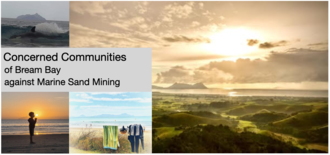
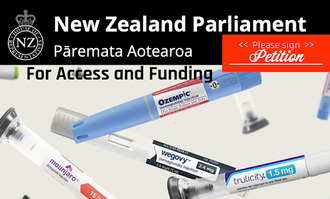
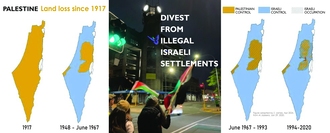-min_formphotoeditor.com.jpg)

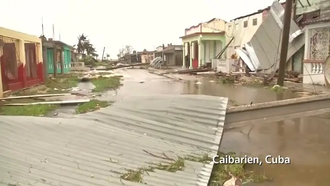.png)

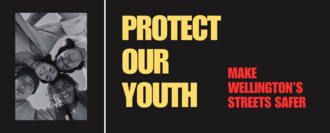
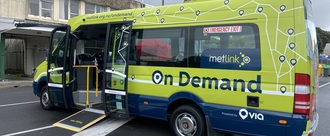

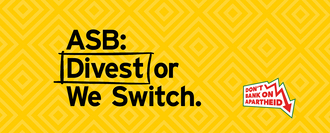
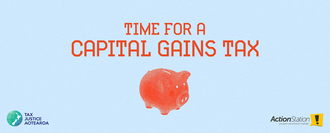
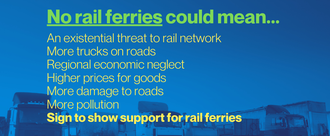.png)